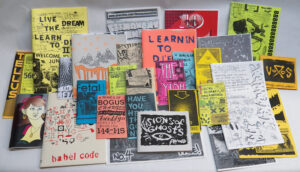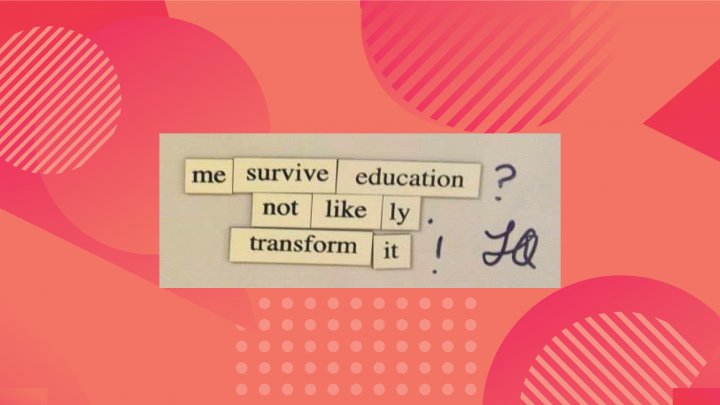Accessibility is an important topic to discuss when it comes to dispersing information that is frequently brushed under the rug for flashier facets surrounding information distribution. Zines at their core lend themselves, (especially in this modern age) to accessibility and I’ll give my view on why I believe that this is.
Certain Accessibilities Already Built In
Throughout history, (or more like the past 30 years) zines have been a big opportunity for those to spread education and awareness cheaply and easily. Accessibility is really baked into traditional zine-making for a lot of reasons, however, I’m always brought to think of these two important facts, specific to just zines:
- It is extremely cheap and easy to produce a zine
- It is extremely cheap and easy to reproduce a zine
Given this, zine-making is endowed with so much power.  So much of what makes zines such anarchy and rebellion-based medium is due to the fact that zines provide a way to give the power of distributing art and activist information to the public that might not have been able to make it out there in the mainstream due to the systems in place.
So much of what makes zines such anarchy and rebellion-based medium is due to the fact that zines provide a way to give the power of distributing art and activist information to the public that might not have been able to make it out there in the mainstream due to the systems in place.
Information Outside of Zines
Traditionally, the way that we intake information comes from a few different sources. We learn facts that shape our reasoning and understanding through
- school
- books
- television
- movies
- etc.
I think we are starting to see a pattern here. All of these avenues are relatively inaccessible to those with opinions outside of the mainstream, those with limited financial means, or really just the average individual. The internet has really changed a lot of this and makes so much larger what zines have done in the first place. In this way, zines spurred this need for accessibility that we hold that predetermined our utilization of online spaces.  Online zines or blogs still very much today function as a way to spread knowledge in the way that zines did at one point in time.
Online zines or blogs still very much today function as a way to spread knowledge in the way that zines did at one point in time.
Zines and the Internet; A Different Kind of Accessibility
Today, now that we are digitizing zines and creating new zines that have a digital component, zines are creating whole new avenues for accessibility. What with the advent of alt text, zines can now circulate in communities of those with visual disabilities, a whole group of people who were disenfranchised for the most part when it came to partaking in zine culture. Zines have always stood as a vehicle for social change and today that extends even farther than previously imagined.

March 12, 2022 at 2:53 pm
Jayne,
I appreciate how you are thinking about in terms of the power of zines in affording people a relatively cheap way of creating and distributing content.
Unfortunately, that isn’t really addressing the prompt, which was to locate and discuss Points of Exclusion as well as how you are planning to distribute your own work.
In terms of Points of Exclusion, the most obvious one is that print zines are a visual medium and unless the zine is made with a Braille version, those who can’t see won’t be able to read them. Braille Book Review is a nice example of a print Braille magazine (https://en.wikipedia.org/wiki/Braille_magazine) but Braille printers are incredibly expensive. Still, it could be useful to think about what you might be able to achieve if you did, indeed, have access to one. And I suspect there are other Points of Exclusion, such as limited supply in various geographies and others.
I encourage you to think through this a bit more as you are working on it and see what identify.
Bill